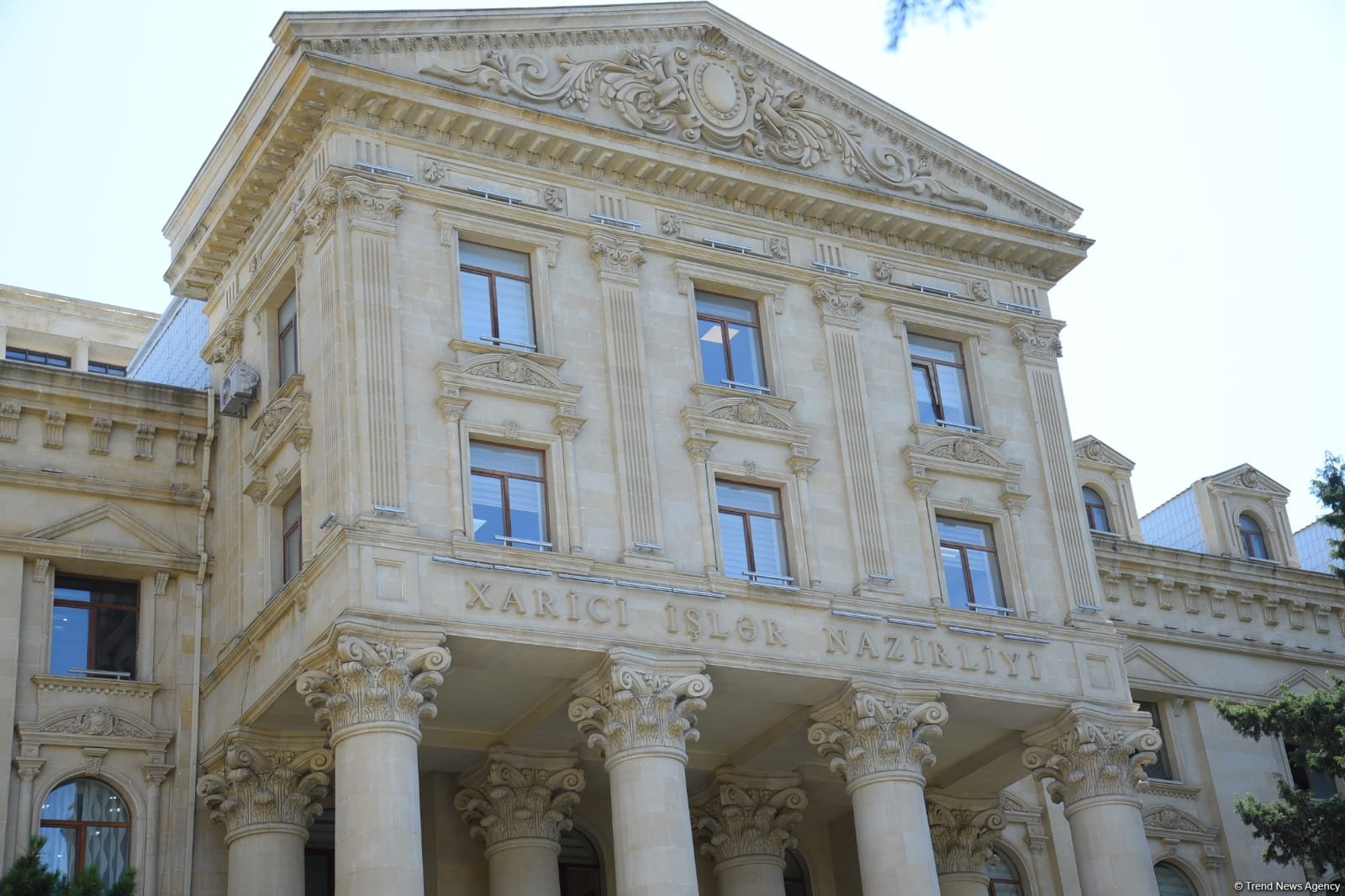BAKU, Azerbaijan, March 31. Azerbaijan’s Foreign Ministry has issued a statement on March 31 - Day of Genocide of Azerbaijanis, Trend reports.
“Today marks the 107th anniversary of the March genocide of 1918, one of the largest genocides committed by radical Armenian groups against peaceful Azerbaijanis in the last century, when thousands of compatriots were brutally killed on ethnic and religious grounds.
On 31 March—Day of Genocide of Azerbaijanis—we commemorate innocent victims of these tragic events with respect and honor.
During these massacres, which were part of a systematic policy of ethnic cleansing and genocide against Azerbaijanis, the killings of innocent Azerbaijanis were carried out with extreme brutality in Baku, Shamakhi, Guba, Garabagh, Zangazur, Nakhchivan, Shirvan, and Irevan by 6,000 armed soldiers from the Baku Soviet and 4,000 soldiers from the Dashnaksutyun Party, as admitted by Stephan Shaumyan, Extraordinary Commissioner of the Caucasus and an ethnic Armenian, under the pretext of "fighting counter-revolutionaries." As a result of these massacres, over 16,000 people were killed, and 167 villages were destroyed with particular savagery in Guba alone.
The atrocities carried out against cultural and religious monuments, mosques, and cemeteries belonging to Azerbaijanis during this massacre, when tens of thousands of our compatriots were killed, stand as clear evidence of the crime of ethnic hatred and intolerance.
Although, following the establishment of the Azerbaijan
Democratic Republic, special institutions were set up to
investigate these events and raise awareness in the international
community, and 31 March was observed as a day of national mourning,
the fall of the Republic hindered the political and legal
assessment of this crime.
After the restoration of our independence and the return of the
National Leader Heydar Aliyev to power, a political assessment of
this genocide was made through the Decree “On the Genocide of
Azerbaijanis” dated 26 March 1998.
The policy of ethnic hatred and intolerance, which underlies the
massacres committed at the beginning of the twentieth century,
persisted through the mass deportation of Azerbaijanis from the
territories of present-day Armenia, atrocities committed against
our people during the conflict and occupation, crimes against
humanity such as the Khojaly genocide at the end of the century, as
well as war crimes against civilians during 44-day Patriotic War in
2020.
Although the current post-conflict period offers historical
opportunities to turn the pages of these tragic chapters in the
region's history and establish lasting and irreversible peace, the
territorial claims that have fueled all the atrocities to date—and
are enshrined in the Constitution of Armenia and various
legislative acts —remain the greatest obstacle and source of
concern for the region’s stable future.
In this regard, Azerbaijan continues its national and
international efforts to hold those responsible for the crimes
accountable, while remaining firm and unwavering in its demand to
end Armenia's ongoing territorial claims against our country, in
pursuit of lasting peace in the region.
On 31 March, the Day of Genocide of Azerbaijanis, we solemnly and
respectfully pay tribute to the memory of innocent Azerbaijanis who
suffered from ethnic hatred and genocide. May Allah rest their
souls in peace!” the statement reads.
Stay up-to-date with more news on Trend News Agency's WhatsApp channel







